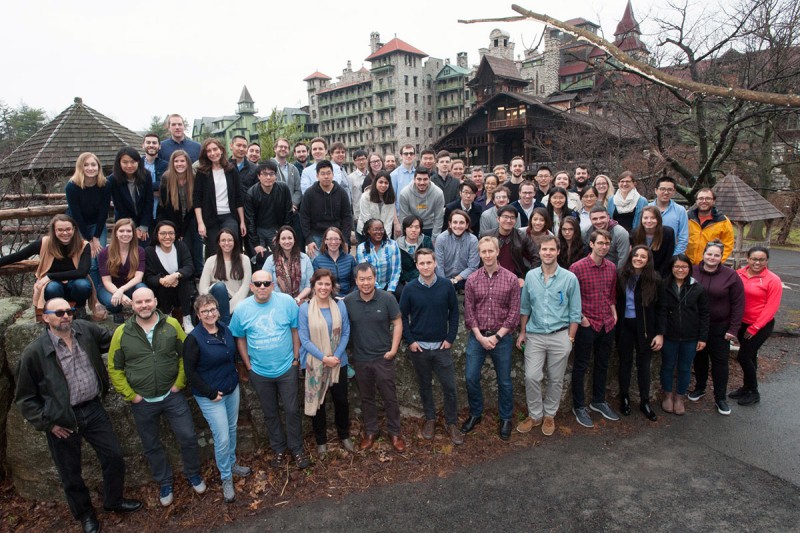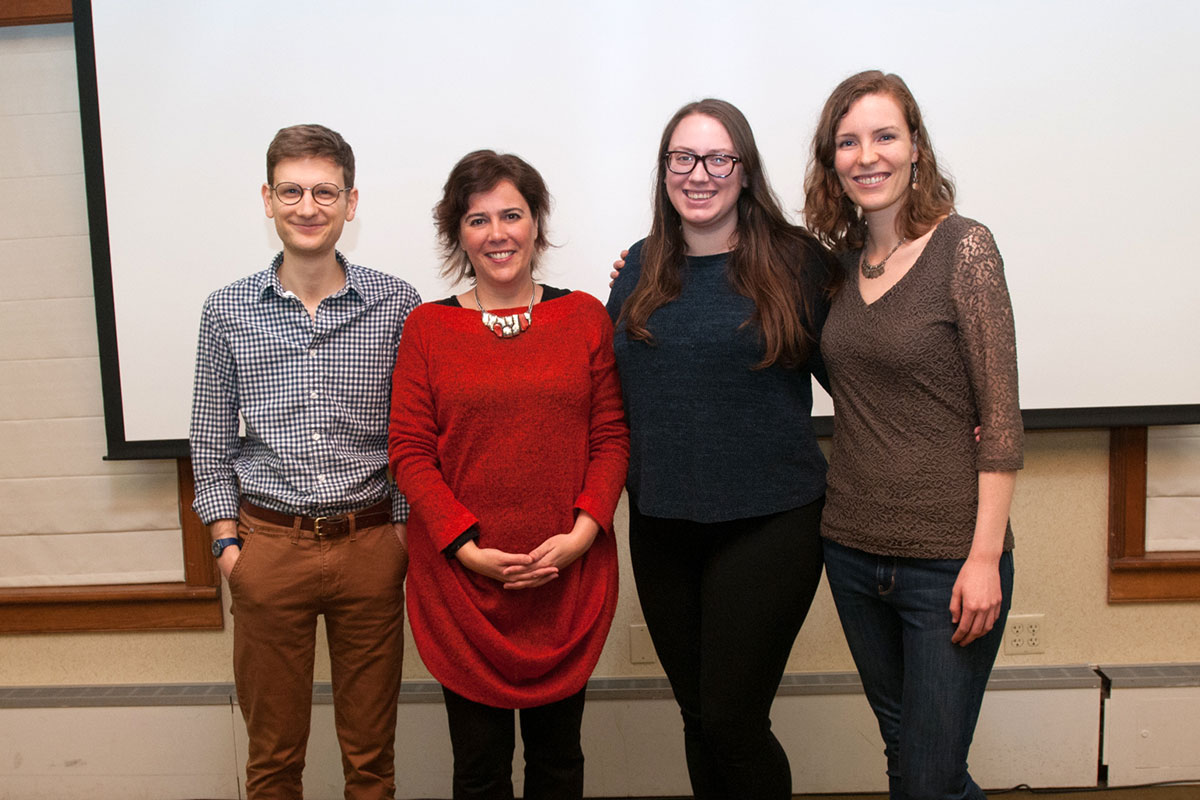
On April 27 and 28 at Mohonk Mountain House in New Paltz, New York, Gerstner Sloan Kettering Graduate School of Biomedical Sciences (GSK) held its fifth biennial retreat for members of the school’s community. Participants included students, faculty members, and staff. The keynote address was given by Carla Rothlin, an associate professor of immunobiology at Yale School of Medicine as well as a Howard Hughes Medical Institute faculty scholar.
Dr. Rothlin’s presentation, “The Virtues of Restraint,” was one of the highlights of the retreat. She described the important insights that her research group has gained into how the immune system balances its two competing interests: to be strong enough to eliminate disease and to be tame enough to limit damage to the body. She also told the audience about her journey to this work from her early years as a budding neuroscientist in her native Argentina.
“Dr. Rothlin was one of the most enthusiastic scientific speakers that I’ve heard,” says Florisela Herrejon Chavez, a first-year GSK student. “She connected her background to the work she currently does and that made her talk very memorable.”
In addition to the keynote address, the retreat featured talks by GSK faculty. Among the presenters was Lydia Finley, an assistant member of Sloan Kettering Institute’s Cell Biology Program, who gave an interactive chalk talk about how metabolic constraints influence the fate of stem cells. Third-year student Gemma Regan-Mochrie comments that Dr. Finley “really encouraged the audience to interact with her and to think critically about what she was presenting.”
Retreat attendees also heard from several GSK students about their research. Many presented one-minute “poster teasers.” This format, which was new to most attendees, is intended to entice the audience to hear more about the work during the poster session. Ms. Regan-Mochrie felt that this strategy was successful and that her teaser encouraged people to come to her poster session.

Zeda Zhang, a fifth-year student, gave a talk on his work showing how fibroblasts, a noncancerous cell type, can promote therapeutic resistance in prostate cancer. He considers this chance to present at the retreat as invaluable to him as a scientist in training. “Giving this talk was a great opportunity to think through the logic of what I was presenting and to understand this part of my work more deeply,” he says.
Along with the presentations, retreat attendees enjoyed many recreational and social activities. Mohonk offers hiking, games, s’mores by a campfire, and more. Since the trip, GSK students and faculty have returned to work in their labs and are already looking forward to the next retreat, slated for the spring of 2020.








